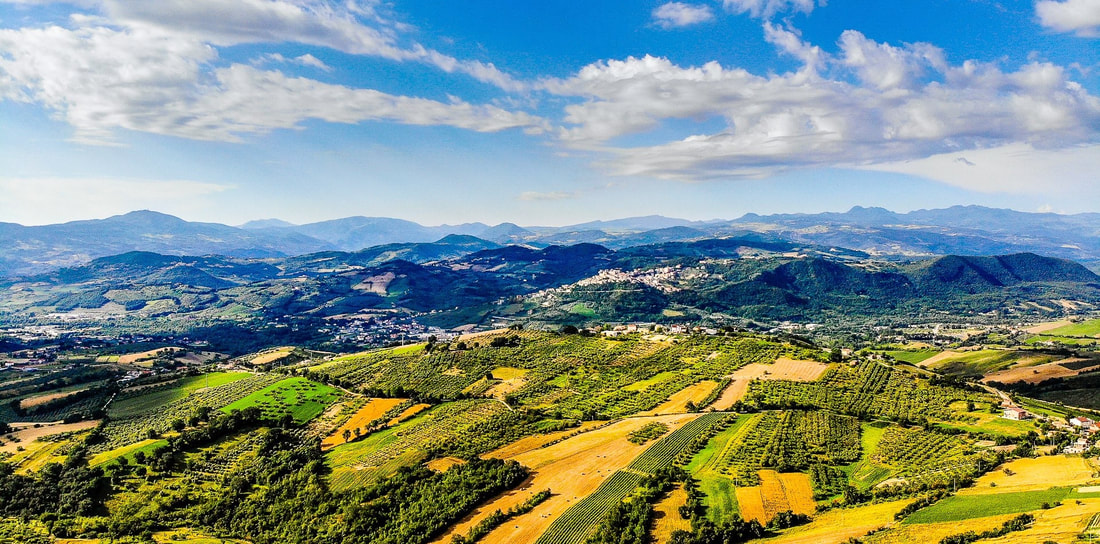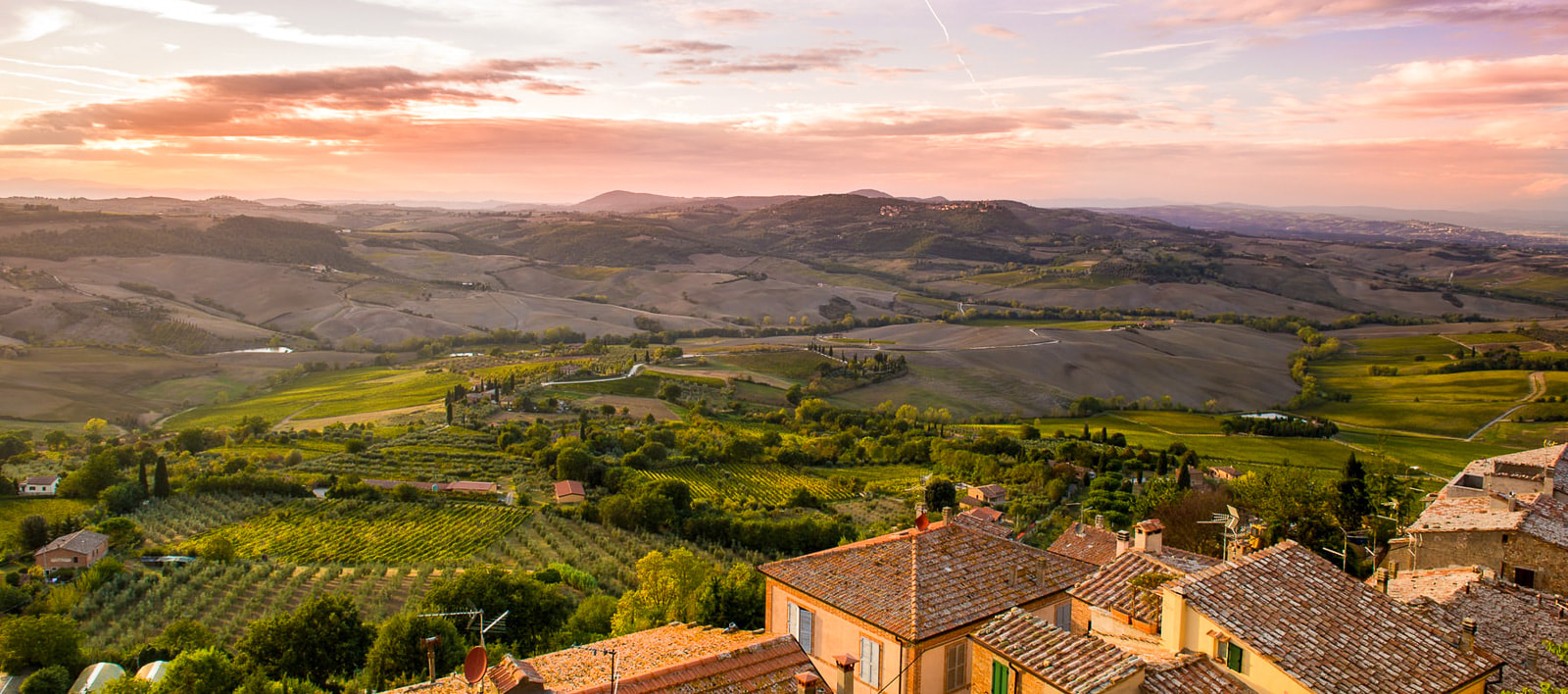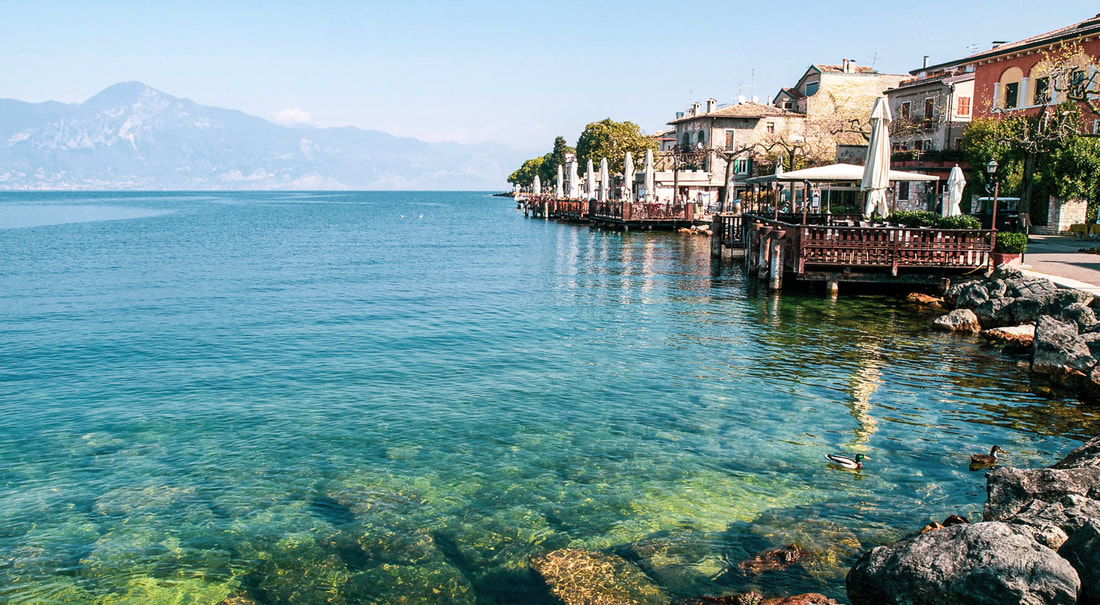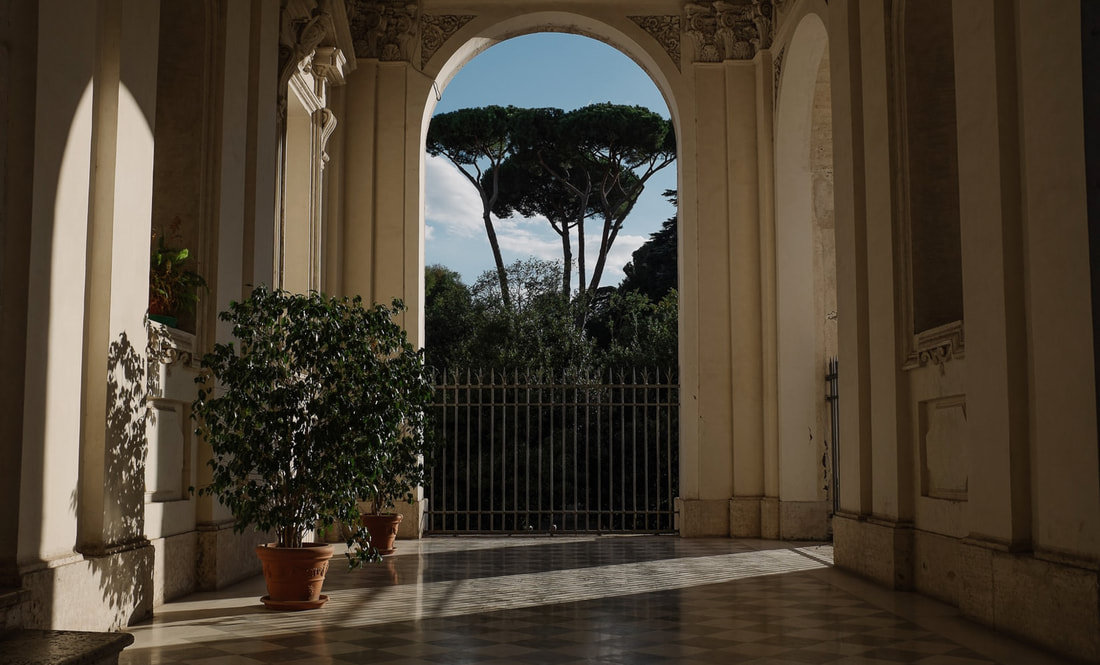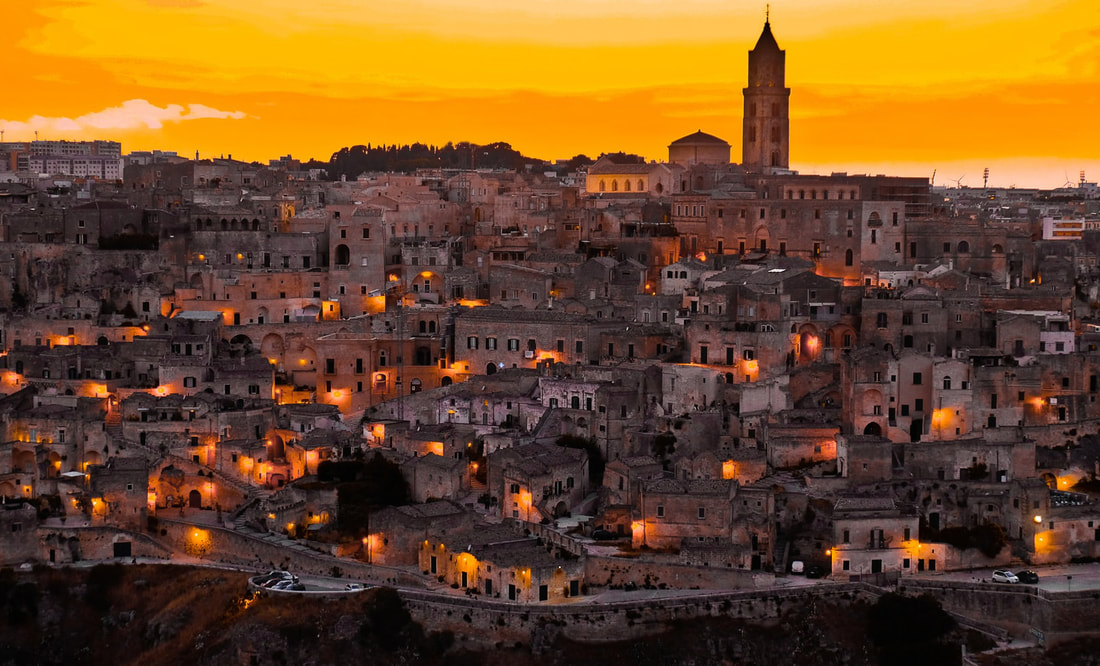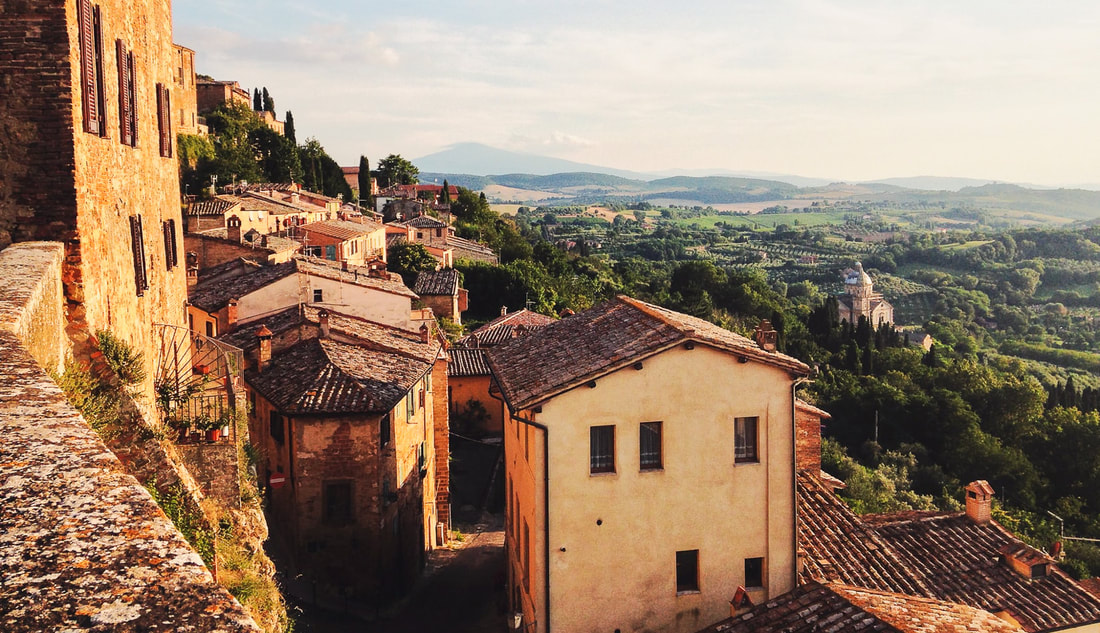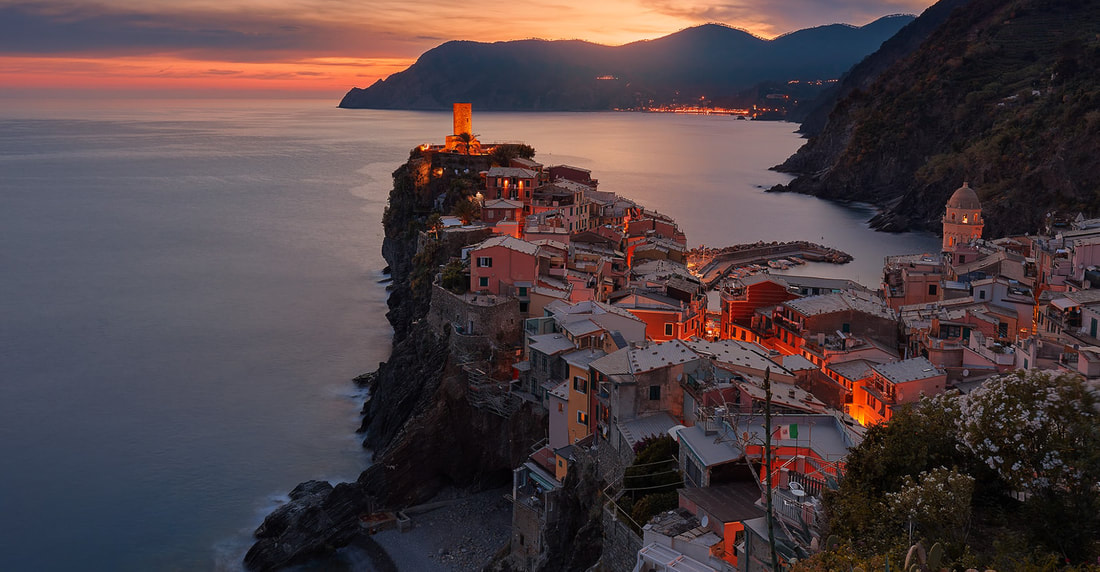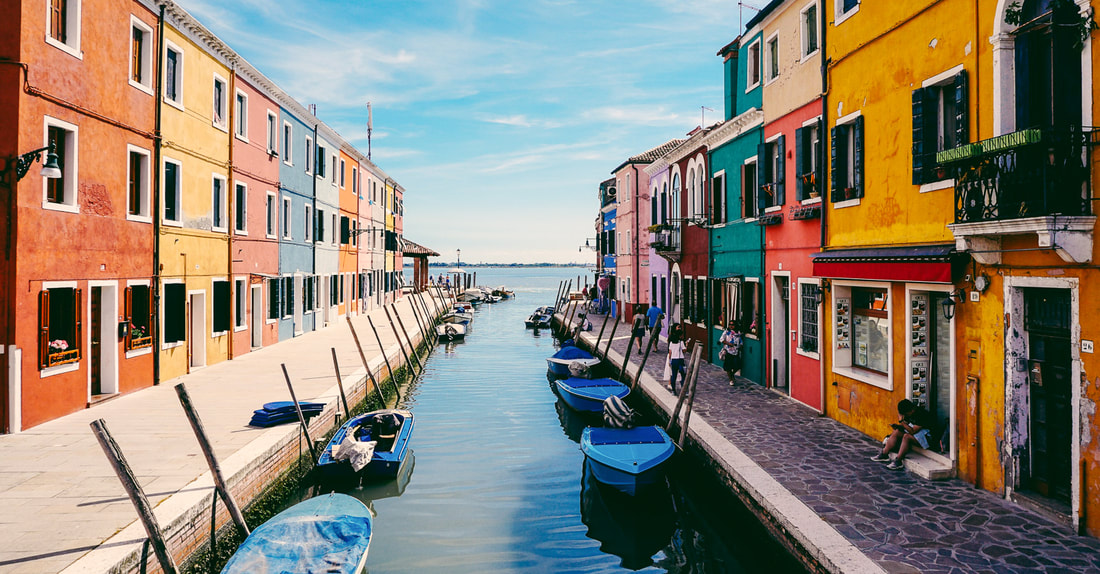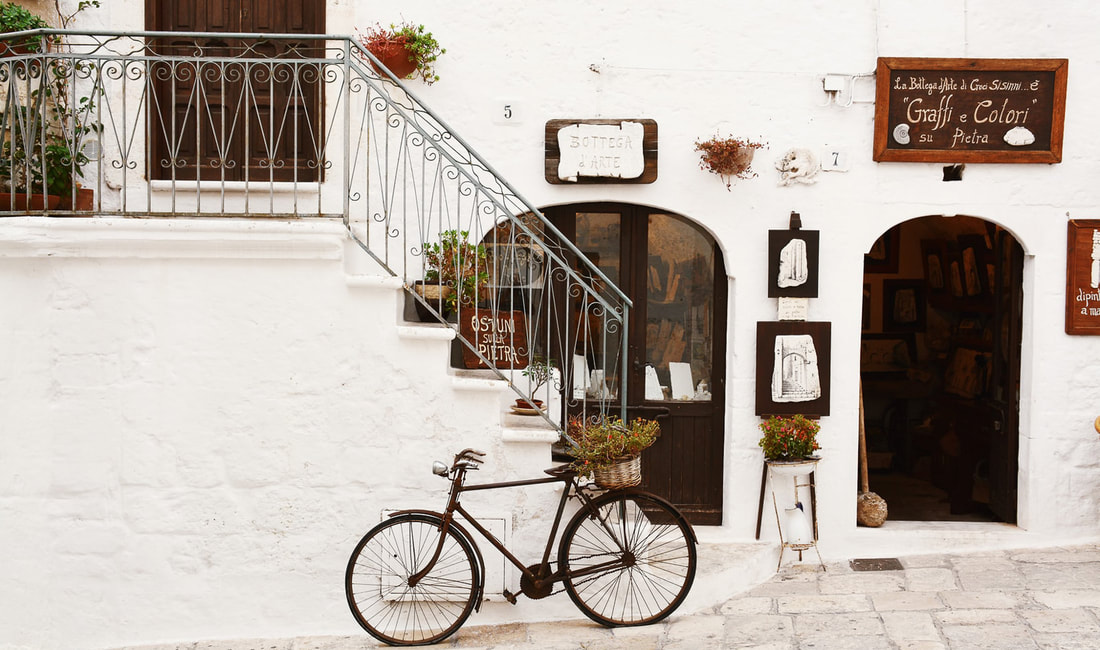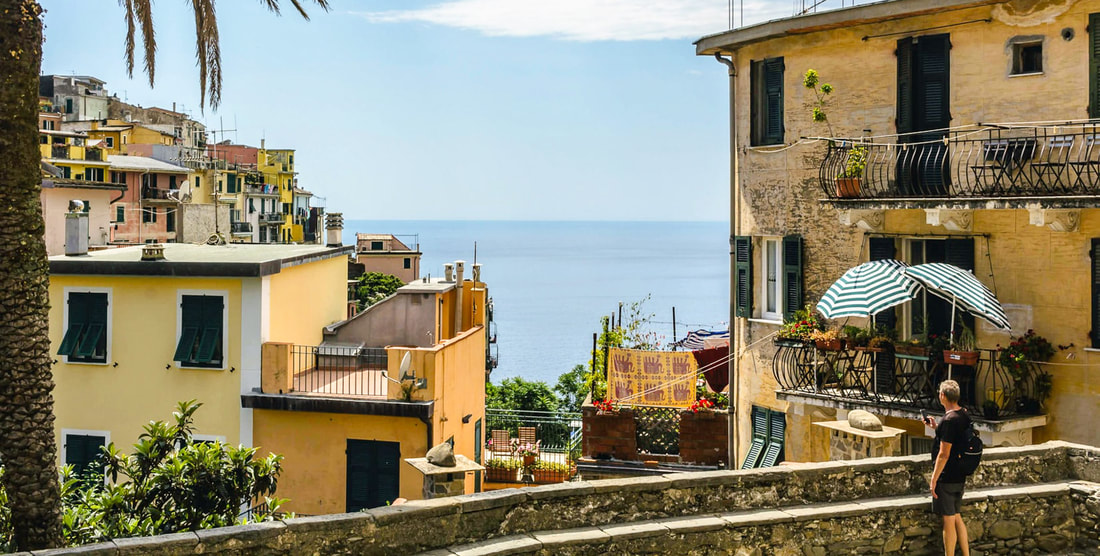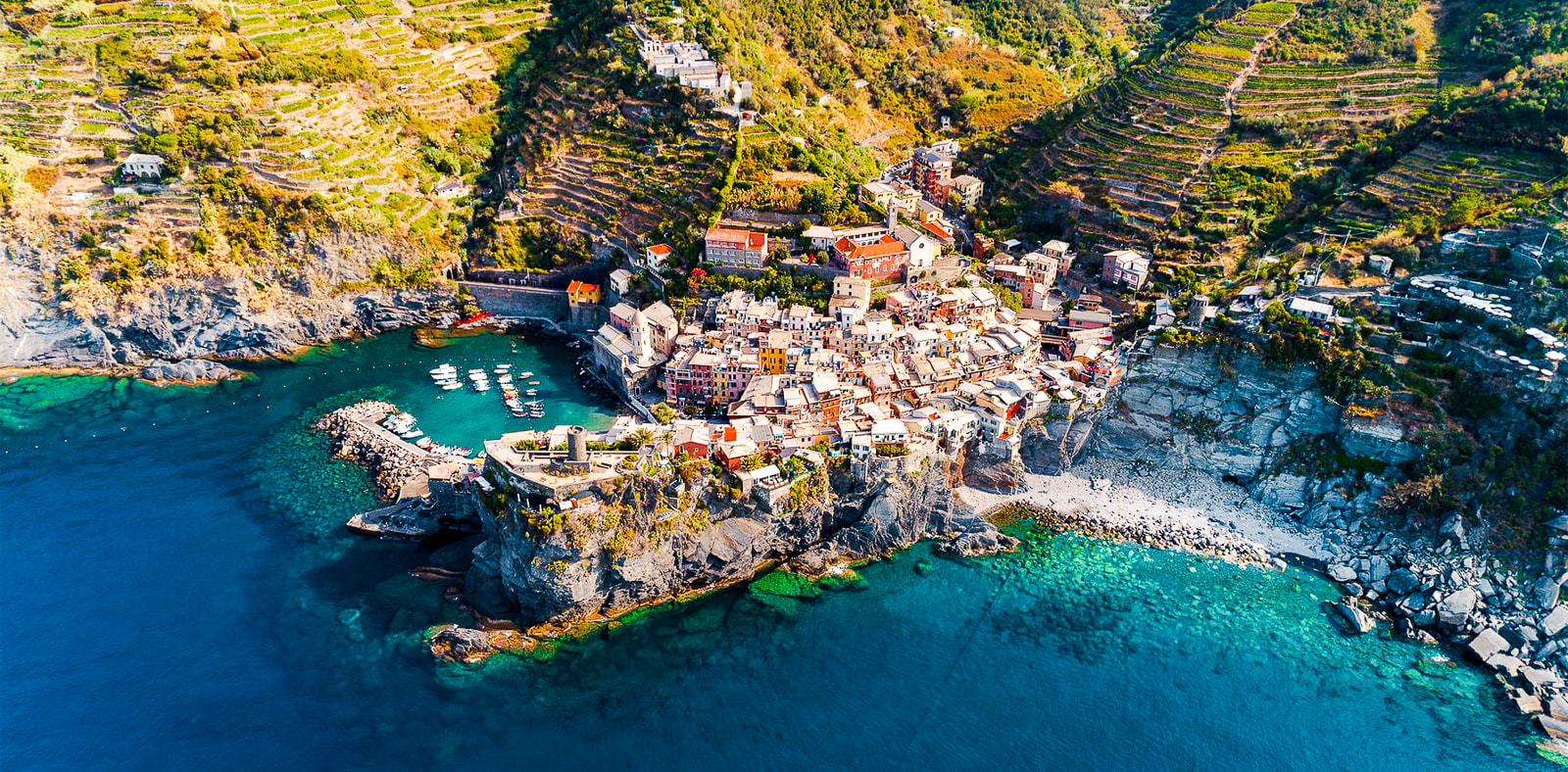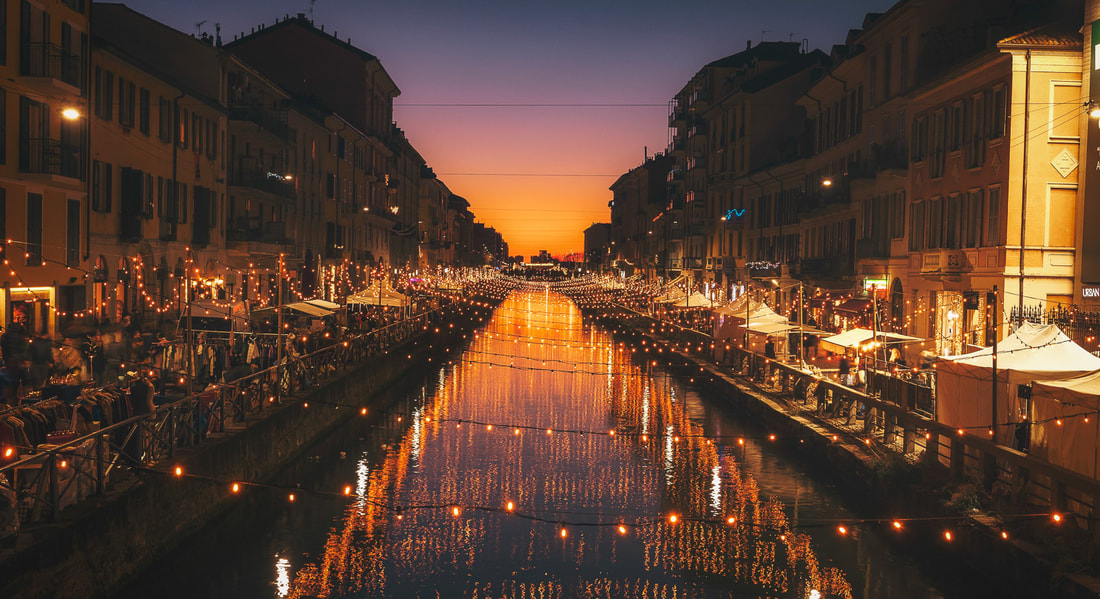A Foreigner's guide to buying a house in Italy
This might be a better time than any in history to embark on the undertaking of buying a home abroad - and it's no wonder that more and more people are doing just that.
On average, buyers today have higher income than ever before, and their mobility is greatly helped by laws and regulations that allow free movement and employment opportunities abroad. In the European Union, for example, people can buy homes across all member-states, and live in them on a permanent basis if they so choose - without needing to obtain visas or any special permits. At the same time, even long-distance travel has never been as affordable as it is today.
In addition, work and career opportunities exist today that were not present before the internet revolution: people are able to either work remotely independent of the location as digital nomads, which means that they can pick a country or town of their choice for any length of time, with the only constraint being a reliable internet connection. This new flexibility is giving opportunities to many people who are still in the workforce to easily relocate abroad full time - something that was in the past a privilege of those who had retried.
There are also nowadays more legal protections guaranteed to buyers thanks to domestic legislation and international agreements, making the process safer and providing the buyer with more certainty.
In addition, with a wealth of information available on the internet, and the ability to easily communicate and exchange experiences with others who have already gone through the process of house-hunting and buying abroad - as well as with real estate and legal experts - the risks associated with buying property abroad have been significantly lowered.
All that being said - buying a house or an apartment remains a complex and serious undertaking even in one's own country, and this becomes amplified when done abroad - especially if you are not well acquainted with local laws, culture, and ways of doing business, and if there is a language barrier.
In most non-English speaking countries in Europe people are more likely to speak the language in big cities and tourist centers, but in rural areas, which are often very attractive to foreign buyers, the likelihood decreases. When deciding to move abroad or start spending a significant portion of the year in a foreign country, it is important to keep in mind that investing time and effort in learning the language may become a part and parcel of the experience. It is also an excellent way to fit into the local community. Language will also be important in the process of acquiring property, though here buyers usually rely on their real estate agents and/or lawyers and often hire translators.
Knowledge of procedures and thorough planning ahead of making any decisions are essential, and any prospective buyer should take their time to learn and research as much as possible before taking the crucial step of actually committing to buying property.
In this article, we focus on providing just that - the crucial steps that a foreigner should follow for a positive experience - specifically when deciding to buy a property in Italy.
On average, buyers today have higher income than ever before, and their mobility is greatly helped by laws and regulations that allow free movement and employment opportunities abroad. In the European Union, for example, people can buy homes across all member-states, and live in them on a permanent basis if they so choose - without needing to obtain visas or any special permits. At the same time, even long-distance travel has never been as affordable as it is today.
In addition, work and career opportunities exist today that were not present before the internet revolution: people are able to either work remotely independent of the location as digital nomads, which means that they can pick a country or town of their choice for any length of time, with the only constraint being a reliable internet connection. This new flexibility is giving opportunities to many people who are still in the workforce to easily relocate abroad full time - something that was in the past a privilege of those who had retried.
There are also nowadays more legal protections guaranteed to buyers thanks to domestic legislation and international agreements, making the process safer and providing the buyer with more certainty.
In addition, with a wealth of information available on the internet, and the ability to easily communicate and exchange experiences with others who have already gone through the process of house-hunting and buying abroad - as well as with real estate and legal experts - the risks associated with buying property abroad have been significantly lowered.
All that being said - buying a house or an apartment remains a complex and serious undertaking even in one's own country, and this becomes amplified when done abroad - especially if you are not well acquainted with local laws, culture, and ways of doing business, and if there is a language barrier.
In most non-English speaking countries in Europe people are more likely to speak the language in big cities and tourist centers, but in rural areas, which are often very attractive to foreign buyers, the likelihood decreases. When deciding to move abroad or start spending a significant portion of the year in a foreign country, it is important to keep in mind that investing time and effort in learning the language may become a part and parcel of the experience. It is also an excellent way to fit into the local community. Language will also be important in the process of acquiring property, though here buyers usually rely on their real estate agents and/or lawyers and often hire translators.
Knowledge of procedures and thorough planning ahead of making any decisions are essential, and any prospective buyer should take their time to learn and research as much as possible before taking the crucial step of actually committing to buying property.
In this article, we focus on providing just that - the crucial steps that a foreigner should follow for a positive experience - specifically when deciding to buy a property in Italy.
WHY ITALY
Italy consistently ranks high on many lists of top destinations for foreigners to purchase property abroad, and for a good reason: the country boasts beautiful cities and nature, geographical variety that can satisfy any taste, long and fascinating history visible at every corner, culture, arts and design.
Foreign buyers tend to go for rural areas rather than big cities, and the steady trend over the past years has been of discovering regions outside the country's best known - and most expensive - ones. It is definitely worth learning as much as possible about all the options that Italy has to offer before deciding on a location.
As for the legal eligibility of foreigners to buy property in Italy, there aren't many obstacles standing in your way: citizens of EU states can buy under the same condition as Italian nationals, while others will require a residency permit. However, if a country has a reciprocity agreement with Italy - as is the case with the United States - its citizens can also buy in Italy with no restrictions, and the same is true of Italians purchasing property in the US.
However, this is not to say that the country's peculiarities when it comes to bureaucracy and paperwork, from the state to the local level, should be underestimated. This issue shouldn't intimidate you either. What you need is a good understanding of all the legal requirements and some solid planning ahead.
To make buying in Italy a simple and positive experience, this article offers a wealth of practical information, goes through and explains in detail best-practice steps that can make property acquisition in that stunningly beautiful and exciting country a safe and manageable undertaking, and mark the beginning of a great new chapter in your life.
Foreign buyers tend to go for rural areas rather than big cities, and the steady trend over the past years has been of discovering regions outside the country's best known - and most expensive - ones. It is definitely worth learning as much as possible about all the options that Italy has to offer before deciding on a location.
As for the legal eligibility of foreigners to buy property in Italy, there aren't many obstacles standing in your way: citizens of EU states can buy under the same condition as Italian nationals, while others will require a residency permit. However, if a country has a reciprocity agreement with Italy - as is the case with the United States - its citizens can also buy in Italy with no restrictions, and the same is true of Italians purchasing property in the US.
However, this is not to say that the country's peculiarities when it comes to bureaucracy and paperwork, from the state to the local level, should be underestimated. This issue shouldn't intimidate you either. What you need is a good understanding of all the legal requirements and some solid planning ahead.
To make buying in Italy a simple and positive experience, this article offers a wealth of practical information, goes through and explains in detail best-practice steps that can make property acquisition in that stunningly beautiful and exciting country a safe and manageable undertaking, and mark the beginning of a great new chapter in your life.
SELECT THE REGION/AREA
There are several key factors to consider while choosing a property abroad - your budget, the type of property you wish to acquire and the type of investment you wish to make. Before we look at each of these factors in detail, we are going to consider another extremely important element - location.
This means both the area of Italy where you will concentrate your search and the type of community where you will choose to base yourself. As we have already pointed out, there is enormous diversity in Italy in both respects. We are going to give a brief outline here of the Italian regions. You may ask yourself whether you prefer the city or the countryside, or if there is a city in particular you like or a geographic location, such as the mountains or lakes or the seaside.
In a country like Italy, all these are available in different regions, and sometimes even within a single region, so it's important to learn as much as possible about different areas in order to make a decision that's right for you.
Given its size, Italy, administratively divided into 20 regions, with 14 metropolitan cities, is probably more varied in terms of geographical features, climate, and even cultural and societal traditions than any other country in Europe.
In the north, the Alps make up a part of each region, but only Trentino–Alto Adige and Valle d'Aosta are completely Alpine - and also landlocked. This is true of two more regions in this part of the country that have no access to the sea - Lombardy and Piedmont. Valle d'Aosta also currently has the distinction of being the most expensive in terms of asking prices per square meter. (Tuscany, Liguria, the island of Sardinia, and Lazio, where Rome is located, are among the priciest regions.)
Therefore, depending on your budget and whether it's beaches and warmer climates you're looking for, most of the northern area of Italy will not be a good fit - but lovers of stunning mountain scenery, skiing, or even big city life in the likes of Milan and Turin or their vicinity, will find their home there.
The only landlocked region of Italy further down south is Umbria - similar in many ways to neighboring Tuscany, which is one of the best known and most popular, but also most expensive parts of the country when it comes to real estate prices.
A true Mediterranean experience awaits in the south of Italy: Apulia on the Adriatic, and Campania on the opposite side with Naples as its capital and within easy reach of nearby volcanic islands, popular tourist resorts Capri and Ischia.
If island life Italian-style is what you're after, there's a lot to choose from - and even in this narrow category, there's great diversity: from Sardinia, off the coast of Tuscany, to Sicily in the extreme south. But real estate prices are very different as well, as Sardinia is currently one of the most expensive, while Sicily is one of the most affordable areas.
One of the more sparsely populated regions that are providing great value for money and should be on the radar of property buyers is Abruzzo, located east of Rome. Pescara is its capital and a coastal resort, but the region has a lot more to offer. Along with Molise, Abruzzo is home to over 20 nature parks and reserves, often described as one of Italy's most beautiful and scenic areas, and one of Europe's greenest regions. Stretching from the Apennine mountains to the Adriatic coast, the region boasts ski resorts in the west and seaside in the east, with historic hilltop towns, stunning castles, vineyards and olive groves in between.
This means both the area of Italy where you will concentrate your search and the type of community where you will choose to base yourself. As we have already pointed out, there is enormous diversity in Italy in both respects. We are going to give a brief outline here of the Italian regions. You may ask yourself whether you prefer the city or the countryside, or if there is a city in particular you like or a geographic location, such as the mountains or lakes or the seaside.
In a country like Italy, all these are available in different regions, and sometimes even within a single region, so it's important to learn as much as possible about different areas in order to make a decision that's right for you.
Given its size, Italy, administratively divided into 20 regions, with 14 metropolitan cities, is probably more varied in terms of geographical features, climate, and even cultural and societal traditions than any other country in Europe.
In the north, the Alps make up a part of each region, but only Trentino–Alto Adige and Valle d'Aosta are completely Alpine - and also landlocked. This is true of two more regions in this part of the country that have no access to the sea - Lombardy and Piedmont. Valle d'Aosta also currently has the distinction of being the most expensive in terms of asking prices per square meter. (Tuscany, Liguria, the island of Sardinia, and Lazio, where Rome is located, are among the priciest regions.)
Therefore, depending on your budget and whether it's beaches and warmer climates you're looking for, most of the northern area of Italy will not be a good fit - but lovers of stunning mountain scenery, skiing, or even big city life in the likes of Milan and Turin or their vicinity, will find their home there.
The only landlocked region of Italy further down south is Umbria - similar in many ways to neighboring Tuscany, which is one of the best known and most popular, but also most expensive parts of the country when it comes to real estate prices.
A true Mediterranean experience awaits in the south of Italy: Apulia on the Adriatic, and Campania on the opposite side with Naples as its capital and within easy reach of nearby volcanic islands, popular tourist resorts Capri and Ischia.
If island life Italian-style is what you're after, there's a lot to choose from - and even in this narrow category, there's great diversity: from Sardinia, off the coast of Tuscany, to Sicily in the extreme south. But real estate prices are very different as well, as Sardinia is currently one of the most expensive, while Sicily is one of the most affordable areas.
One of the more sparsely populated regions that are providing great value for money and should be on the radar of property buyers is Abruzzo, located east of Rome. Pescara is its capital and a coastal resort, but the region has a lot more to offer. Along with Molise, Abruzzo is home to over 20 nature parks and reserves, often described as one of Italy's most beautiful and scenic areas, and one of Europe's greenest regions. Stretching from the Apennine mountains to the Adriatic coast, the region boasts ski resorts in the west and seaside in the east, with historic hilltop towns, stunning castles, vineyards and olive groves in between.
TAX INCENTIVES
Recently, in order to ensure more equal development of all regions and to spur economic development of those less densely populated and less affluent areas, the Italian government has been introducing tax incentives for foreigners moving to central and southern regions: Sicily, Sardinia, Campania, Basilicata, Abruzzo, Molise and Apulia.
This means that foreigners who have not been tax residents for at least five tax periods before moving to Italy have now become eligible, starting in January 2019, for a 7% flat rate tax on all their foreign sourced income.
These taxes normally range from 23 to 43%. In other words, if you're a retiree looking to move to Italy this might be a better time than any - provided you pick a town or a village with a maximum 20,000 inhabitants located in one of the seven regions, and many of these areas are up-and-coming and increasingly on the radar of foreign buyers.
Also starting in 2019, Italy is offering foreigners who become Italian tax residents, and who have not lived in the country in the previous two years, tax exemption ranging from 50 to 70 % during the first five years. Once again, the exemption rate is the highest (90 %) for those who choose to move to the country's southern regions. And if during your first five years in the country you buy residential property - you will qualify for another five years under this special tax scheme.
This means that foreigners who have not been tax residents for at least five tax periods before moving to Italy have now become eligible, starting in January 2019, for a 7% flat rate tax on all their foreign sourced income.
These taxes normally range from 23 to 43%. In other words, if you're a retiree looking to move to Italy this might be a better time than any - provided you pick a town or a village with a maximum 20,000 inhabitants located in one of the seven regions, and many of these areas are up-and-coming and increasingly on the radar of foreign buyers.
Also starting in 2019, Italy is offering foreigners who become Italian tax residents, and who have not lived in the country in the previous two years, tax exemption ranging from 50 to 70 % during the first five years. Once again, the exemption rate is the highest (90 %) for those who choose to move to the country's southern regions. And if during your first five years in the country you buy residential property - you will qualify for another five years under this special tax scheme.
EXPLORING ALL POSSIBILITIES
Once you have identified the location that suits you best and where you see yourself living or spending time - it's a good idea to spend some time there, visiting or renting for a couple of weeks or months, before committing to buying in the area. This will give you a good idea of the community and lifestyle that you will become a part of once you move to your new home.
While traveling to and staying in the area for a "test drive" you will also be able to learn how easy it is to travel to the location - what airports, train lines, and other transportation is available nearby. In addition, you will gain a glimpse into the local life and society, the proximity of shops, restaurants, schools, medical facilities, or anything else that is important to you - and how well all this fits into your lifestyle and needs.
You might have family ties to Italy, or be prepared to be fully immersed in the local experience - or you may prefer moving to a place that has an established expat community where you would find it easier to live while not speaking the language or sharing in the local culture and customs. With a great amount of information at your fingertips on the internet, these might be some points worth researching before identifying the part of the country or the city where you want to buy.
On the other hand, if you are buying an investment or rental property, you will want to consider how popular the region is with holidaymakers, what kind of competition you might be facing and how easy it would be to resell your property down the line.
As a rule, properties in urban centers and near popular destinations and places of interest command the highest rental prices. Currently, some of the highest rental prices per square meter per month are on the island of Sardinia, while the lowest can be found in the south, in Calabria. As with buying prices, there are significant variations in rental prices among the various Italian regions and even single areas. Doing your research prior to buying an investment property is essential to get a realistic idea of the yield it may produce.
If you intend to buy your new primary residence or a vacation home, personal preference, along with the budget, will obviously come into play as a key factor. In this case, finding a location where you will feel at home and where you will want to live or return to year after year will be your main task.
Beyond the location and the budget, as well as the type of property, which we discuss later in detail, picking the right region could entail other considerations, including public safety and crime rates. As is often the case around the world, big cities have a higher incidence of crime - the good news is, crime rates have been stable or dropping over the past ten years in Italy.
While traveling to and staying in the area for a "test drive" you will also be able to learn how easy it is to travel to the location - what airports, train lines, and other transportation is available nearby. In addition, you will gain a glimpse into the local life and society, the proximity of shops, restaurants, schools, medical facilities, or anything else that is important to you - and how well all this fits into your lifestyle and needs.
You might have family ties to Italy, or be prepared to be fully immersed in the local experience - or you may prefer moving to a place that has an established expat community where you would find it easier to live while not speaking the language or sharing in the local culture and customs. With a great amount of information at your fingertips on the internet, these might be some points worth researching before identifying the part of the country or the city where you want to buy.
On the other hand, if you are buying an investment or rental property, you will want to consider how popular the region is with holidaymakers, what kind of competition you might be facing and how easy it would be to resell your property down the line.
As a rule, properties in urban centers and near popular destinations and places of interest command the highest rental prices. Currently, some of the highest rental prices per square meter per month are on the island of Sardinia, while the lowest can be found in the south, in Calabria. As with buying prices, there are significant variations in rental prices among the various Italian regions and even single areas. Doing your research prior to buying an investment property is essential to get a realistic idea of the yield it may produce.
If you intend to buy your new primary residence or a vacation home, personal preference, along with the budget, will obviously come into play as a key factor. In this case, finding a location where you will feel at home and where you will want to live or return to year after year will be your main task.
Beyond the location and the budget, as well as the type of property, which we discuss later in detail, picking the right region could entail other considerations, including public safety and crime rates. As is often the case around the world, big cities have a higher incidence of crime - the good news is, crime rates have been stable or dropping over the past ten years in Italy.
MAKE A FINANCIAL PLAN - YOUR BUDGET AND TIMELINE
Once you are sure where you want to buy your new Italian home, the next step is to determine how much to spend on it. One key element to your overall positive experience is to set healthy foundations by coming up with a realistic budget and deadlines - in other words, a sound financial plan.
As we mentioned in the previous chapter, different regions will offer greatly varying prices and value for your money. Generally speaking, northern areas of Italy, along with northern Sardinia, Tuscany, Rome and the most popular destinations in central and southern Italy are the priciest areas in terms of real estate.
At the same time, many affordable local real estate markets in central and southern parts of Italy are hidden gems that are slowly being discovered. Therefore, it might be worth looking into the trends for your chosen location, to find out if buying now could represent a profitable long-term investment - this in turn could also affect the amount of money you are willing to commit to the property.
Buying a house in need of renovation is another interesting option, especially in lesser known areas that afford the lowest prices. This may result in higher yields in the medium to long term, although the cost of renovation will have to be factored in.
Your mortgage must be secured from a bank based in Italy, regardless of whether it's an Italian bank or an international branch. Not all banks will give mortgages to foreigners, but according to statistics, over the past several years the trend has been of an increasing number of approved mortgages to foreigners. Most banks require non-EU citizens to provide the bank with their residency permit, while having an employment contract that proves a stable income greatly increases chances of a positive outcome.
However, you should inquire how much money you will be able to borrow this way. The bank will look into your personal finances, and also into the legal status of the property you intend to buy before approving a mortgage. As of 2019, interest rates have been low in Italy, making it an even more attractive market for property purchases.
As is the case with many of the things you will need to navigate the buying process - here, too, unless you are fluent in Italian, it's a good idea to consult with a reputable local English-speaking financial adviser
Italy also offers lower property taxes and lower VAT or property registration fees for first time buyers, and this benefits both Italian nationals and foreigners. To qualify, foreigners must establish residence in the municipality where they are buying the property within 18 months after the purchase.
As we mentioned in the previous chapter, different regions will offer greatly varying prices and value for your money. Generally speaking, northern areas of Italy, along with northern Sardinia, Tuscany, Rome and the most popular destinations in central and southern Italy are the priciest areas in terms of real estate.
At the same time, many affordable local real estate markets in central and southern parts of Italy are hidden gems that are slowly being discovered. Therefore, it might be worth looking into the trends for your chosen location, to find out if buying now could represent a profitable long-term investment - this in turn could also affect the amount of money you are willing to commit to the property.
Buying a house in need of renovation is another interesting option, especially in lesser known areas that afford the lowest prices. This may result in higher yields in the medium to long term, although the cost of renovation will have to be factored in.
Your mortgage must be secured from a bank based in Italy, regardless of whether it's an Italian bank or an international branch. Not all banks will give mortgages to foreigners, but according to statistics, over the past several years the trend has been of an increasing number of approved mortgages to foreigners. Most banks require non-EU citizens to provide the bank with their residency permit, while having an employment contract that proves a stable income greatly increases chances of a positive outcome.
However, you should inquire how much money you will be able to borrow this way. The bank will look into your personal finances, and also into the legal status of the property you intend to buy before approving a mortgage. As of 2019, interest rates have been low in Italy, making it an even more attractive market for property purchases.
As is the case with many of the things you will need to navigate the buying process - here, too, unless you are fluent in Italian, it's a good idea to consult with a reputable local English-speaking financial adviser
Italy also offers lower property taxes and lower VAT or property registration fees for first time buyers, and this benefits both Italian nationals and foreigners. To qualify, foreigners must establish residence in the municipality where they are buying the property within 18 months after the purchase.
OVERALL BUDGET
When budgeting for a property purchase it is important to keep in mind that the overall cost will go beyond the sale price of the property. There will be administrative costs tied to the acquisition itself: taxes and fees relating to sale and transfer, as well as professional fees payable to the various professionals involved in the process - estate agents, surveyors, sometimes lawyers and translators and last but not least the notaio that draws and seals the contract.
Property taxes in Italy are calculated against the valore catastale or land registry value of the property, rather than the actual market price of the property, and valore catastale can be significantly lower than the market price.
A good rule of thumb is to increase your total budget for the acquisition of property by between 10 and 15% to make sure you cover the property sale taxes and all the fees paid to professionals. The transfer tax paid can vary from 2 to 9% based on valore catastale, depending on whether you intend to become a resident and are buying your first home in Italy, or will own the property as a non-resident.
The 3% commission paid to your real estate agent is an added sum to the purchase price and other administrative cost.
Once the sale is complete, utilities will have to be transferred to your name in order to connect your electricity, water, gas, and internet- these costs also need to be calculated into your budget.
As a house owner you are due to pay both local authority taxes on your property and income tax if you make a rental profit.
Currently there exist two main local taxes in Italy, namely IMU and TASI. The comune or local authority calculates and levies such taxes. You will find more information about local taxes in the next section. Here we just wish to point out that rates vary from region to region and the north-south rule once again roughly applies, as costs tend to be lower the further south you go. You may wish to incorporate such consideration in your budgeting process.
As for income tax, we highly recommend speaking to a financial adviser or your estate agent.
In addition to the above, you will incur travel and accommodation expenses during your house hunting and it would be wise to include those in your overall budget.
Lastly, once you have acquired your new Italian home, you may have to make some purchases for furniture, furnishings and even equipment if you have a garden, land or a swimming pool.
Property taxes in Italy are calculated against the valore catastale or land registry value of the property, rather than the actual market price of the property, and valore catastale can be significantly lower than the market price.
A good rule of thumb is to increase your total budget for the acquisition of property by between 10 and 15% to make sure you cover the property sale taxes and all the fees paid to professionals. The transfer tax paid can vary from 2 to 9% based on valore catastale, depending on whether you intend to become a resident and are buying your first home in Italy, or will own the property as a non-resident.
The 3% commission paid to your real estate agent is an added sum to the purchase price and other administrative cost.
Once the sale is complete, utilities will have to be transferred to your name in order to connect your electricity, water, gas, and internet- these costs also need to be calculated into your budget.
As a house owner you are due to pay both local authority taxes on your property and income tax if you make a rental profit.
Currently there exist two main local taxes in Italy, namely IMU and TASI. The comune or local authority calculates and levies such taxes. You will find more information about local taxes in the next section. Here we just wish to point out that rates vary from region to region and the north-south rule once again roughly applies, as costs tend to be lower the further south you go. You may wish to incorporate such consideration in your budgeting process.
As for income tax, we highly recommend speaking to a financial adviser or your estate agent.
In addition to the above, you will incur travel and accommodation expenses during your house hunting and it would be wise to include those in your overall budget.
Lastly, once you have acquired your new Italian home, you may have to make some purchases for furniture, furnishings and even equipment if you have a garden, land or a swimming pool.
RUNNING COSTS AND TAXATION RULES
When buying real estate abroad, the investment is typically long-term, and your future expenses as an owner should also be taken into account when setting your budget.
Maintenance costs are a relevant factor, particularly in the medium to long term. They may not be apparent when budgeting for a property purchase, but they will certainly be a recurring item in the years to follow. This is especially true for larger properties and those comprising a substantial garden, land or outside facilities such as a swimming pool. In addition to that, the larger the property, the higher the home insurance premium.
As noted in the previous section, there are other recurring expenses when owning a property in Italy, such as municipal property and rural land taxes (IMU and TASI). They are paid annually in two installments; the former is to be paid on all except on non-luxury class of primary residence. This means that the IMU tax will have to be paid for second homes and rental properties, You will also be paying the garbage tax (TARI), which varies from municipality to municipality. If you rent your property, any rental profit you make will be subject to income tax under Italian law.
You may be exempt from it if you are not resident in Italy, but in that case you may fall under taxation rules of your home country or your country of residence. It is highly advisable that you consult a tax adviser to clarify your position.
As regards capital gain tax at the time of resell, under Italian law you will not have to pay any if you have owned the property for at least five years. If the resale happens sooner than five years, the tax rate is currently 20%. It should be noted here that if you are a foreign national, you may still be subject to capital gains tax under your home country tax laws. Once again, it is essential that you clarify your position with the help of a tax adviser.
Don't forget to consider the cost of your health insurance and local health care rules. Citizens and residents enjoy universal coverage provided by Italy's healthcare system, Servizio Sanitario Nazionale (SSN). It is also available to citizens of EU countries, while those coming from non-EU states must must become Italian residents and carry Italian ID cards to use it.
Unless you meet these criteria, you should have a private insurance plan, and make sure you don't leave this item out of your budget considerations. Another reason to consider international private insurance is to have access to English speaking doctors and reduce waiting times for some medical procedures - the latter may represent a problem in the country's otherwise high-quality health care system.
Maintenance costs are a relevant factor, particularly in the medium to long term. They may not be apparent when budgeting for a property purchase, but they will certainly be a recurring item in the years to follow. This is especially true for larger properties and those comprising a substantial garden, land or outside facilities such as a swimming pool. In addition to that, the larger the property, the higher the home insurance premium.
As noted in the previous section, there are other recurring expenses when owning a property in Italy, such as municipal property and rural land taxes (IMU and TASI). They are paid annually in two installments; the former is to be paid on all except on non-luxury class of primary residence. This means that the IMU tax will have to be paid for second homes and rental properties, You will also be paying the garbage tax (TARI), which varies from municipality to municipality. If you rent your property, any rental profit you make will be subject to income tax under Italian law.
You may be exempt from it if you are not resident in Italy, but in that case you may fall under taxation rules of your home country or your country of residence. It is highly advisable that you consult a tax adviser to clarify your position.
As regards capital gain tax at the time of resell, under Italian law you will not have to pay any if you have owned the property for at least five years. If the resale happens sooner than five years, the tax rate is currently 20%. It should be noted here that if you are a foreign national, you may still be subject to capital gains tax under your home country tax laws. Once again, it is essential that you clarify your position with the help of a tax adviser.
Don't forget to consider the cost of your health insurance and local health care rules. Citizens and residents enjoy universal coverage provided by Italy's healthcare system, Servizio Sanitario Nazionale (SSN). It is also available to citizens of EU countries, while those coming from non-EU states must must become Italian residents and carry Italian ID cards to use it.
Unless you meet these criteria, you should have a private insurance plan, and make sure you don't leave this item out of your budget considerations. Another reason to consider international private insurance is to have access to English speaking doctors and reduce waiting times for some medical procedures - the latter may represent a problem in the country's otherwise high-quality health care system.
Contact us for a free chat
before buying or renovating a property in Abruzzo.
Our expert advice could save you a lot of time and money.
before buying or renovating a property in Abruzzo.
Our expert advice could save you a lot of time and money.
THINK ABOUT THE HOUSE TYPOLOGY THAT IS RIGHT FOR YOU
Unless you have a very clear idea of the architectural style that your new Italian property should have, here is another issue in your journey towards becoming a homeowner in this country that will have you spoiled for choice.
House styles in Italy are extremely varied, changing from region to region, reflecting different climates, geographical features, centuries and sometimes millennia-long histories with influences from a multitude of civilizations that have over time been present here. Standard building materials are concrete, brick or stone, while wood is used in the Alpine region.
If you are buying a property that is ready to move into, the type of house you might select will depend a lot on your situation and lifestyle choices: whether you are working or retired, single or with family: whether you want to live in an urban area with quick and easy access to shops and restaurants, or make your rural dream come true on a farm in the countryside.
It's good to keep in mind that having your own vineyard or olive grove, or a house with a big garden and a pool are some of the features that will increase the overall maintenance cost going forward.
Another consideration that may influence your choice in property size and/or style is the purpose of your purchase, namely whether it is going to be your primary residence or a rental house.
Beside traditional housing styles, there are also many modern, newly built homes and apartment blocks, in urban areas and in tourist resorts along the seacoast. Alternatively, you might consider buying a plot of land and building your own house, with exactly the functionality and in the architectural style that suits your needs and taste. It might sound like a daunting project, and it does involve a further degree of complexity, but ultimately it can be a more rewarding and cost effective way to become a homeowner in Italy.
In this scenario you will have to comply with building codes and legal regulations, that are for the most part determined by local and regional authorities, which, as you might have surmised by now, have a considerable degree of autonomy in administrative matters. Reputable local architects, engineers and builders are your go-to professionals, as they know the market and regulations in the area. They are a valuable source of information and advice when it comes to planning and beyond.
Needless to say that building or renovating a house without complying with the required regulations or obtaining the necessary permits is illegal and will inevitably lead to negative repercussions at some future stage - it may even result in a demolition order for illegally or improperly built structures on top of a hefty fine.
In case you do decide to build your own home, you will face few restrictions when it comes to type and architectural style - other than, of course, attempting to build an over-sized or poorly designed structure that would be deemed unsuitable to fit into the landscape and existing architectural identity or the area.
Please note that if a piece of land already has a structure already built on it, it would classify as building land, even if the structure is a ruin only fit for demolition. This is worth considering as it may speed up the process of obtaining planning permission for a new building.
On the other hand, if you buy an old property in need of renovation its stylistic and architectural integrity will have to be preserved in the restoration process, while building permissions will also have to be obtained.
Many up-and-coming, southern regions are slowly being discovered and offer houses that are bought as restoration project at very low prices, especially in rural areas. This would free up a good portion of your overall budget, meaning that more money could be spent on the restoration itself and getting your house exactly how you wanted it. There will be fewer tourists and buyers in these areas, which also makes them an investment opportunity, as they still offer the full Italian experience: excellent food, wine, climate, beautiful nature and historical sites.
Some regions that are less densely populated are even offering homes that require restoration work for free or for a symbolic price - but there are strings attached, such as deadlines for repairing the buildings. Furthermore, these houses are often in remote areas, another consideration to keep in mind.
Irrespective of location and price, properties should be surveyed by licensed qualified professionals (Geometras) before any decision is made to buy and go ahead with restoration works - as learning about the condition of the building will give you a realistic idea about the costs involved in repairing it.
While initially your house-hunting will almost certainly be done online, once the list of potential houses has been narrowed down, it will be time to start looking at properties in person, taking in their surroundings and views as well.
At that stage, be prepared to change your mind about a particular house type once you start looking at houses in their natural settings. You might set out to buy a home ready to be moved in immediately, and then decide to go for a restoration option, or vice versa. Whatever your decision, it's important not to rush into it, giving yourself time, and gathering all the necessary information.
House styles in Italy are extremely varied, changing from region to region, reflecting different climates, geographical features, centuries and sometimes millennia-long histories with influences from a multitude of civilizations that have over time been present here. Standard building materials are concrete, brick or stone, while wood is used in the Alpine region.
If you are buying a property that is ready to move into, the type of house you might select will depend a lot on your situation and lifestyle choices: whether you are working or retired, single or with family: whether you want to live in an urban area with quick and easy access to shops and restaurants, or make your rural dream come true on a farm in the countryside.
It's good to keep in mind that having your own vineyard or olive grove, or a house with a big garden and a pool are some of the features that will increase the overall maintenance cost going forward.
Another consideration that may influence your choice in property size and/or style is the purpose of your purchase, namely whether it is going to be your primary residence or a rental house.
Beside traditional housing styles, there are also many modern, newly built homes and apartment blocks, in urban areas and in tourist resorts along the seacoast. Alternatively, you might consider buying a plot of land and building your own house, with exactly the functionality and in the architectural style that suits your needs and taste. It might sound like a daunting project, and it does involve a further degree of complexity, but ultimately it can be a more rewarding and cost effective way to become a homeowner in Italy.
In this scenario you will have to comply with building codes and legal regulations, that are for the most part determined by local and regional authorities, which, as you might have surmised by now, have a considerable degree of autonomy in administrative matters. Reputable local architects, engineers and builders are your go-to professionals, as they know the market and regulations in the area. They are a valuable source of information and advice when it comes to planning and beyond.
Needless to say that building or renovating a house without complying with the required regulations or obtaining the necessary permits is illegal and will inevitably lead to negative repercussions at some future stage - it may even result in a demolition order for illegally or improperly built structures on top of a hefty fine.
In case you do decide to build your own home, you will face few restrictions when it comes to type and architectural style - other than, of course, attempting to build an over-sized or poorly designed structure that would be deemed unsuitable to fit into the landscape and existing architectural identity or the area.
Please note that if a piece of land already has a structure already built on it, it would classify as building land, even if the structure is a ruin only fit for demolition. This is worth considering as it may speed up the process of obtaining planning permission for a new building.
On the other hand, if you buy an old property in need of renovation its stylistic and architectural integrity will have to be preserved in the restoration process, while building permissions will also have to be obtained.
Many up-and-coming, southern regions are slowly being discovered and offer houses that are bought as restoration project at very low prices, especially in rural areas. This would free up a good portion of your overall budget, meaning that more money could be spent on the restoration itself and getting your house exactly how you wanted it. There will be fewer tourists and buyers in these areas, which also makes them an investment opportunity, as they still offer the full Italian experience: excellent food, wine, climate, beautiful nature and historical sites.
Some regions that are less densely populated are even offering homes that require restoration work for free or for a symbolic price - but there are strings attached, such as deadlines for repairing the buildings. Furthermore, these houses are often in remote areas, another consideration to keep in mind.
Irrespective of location and price, properties should be surveyed by licensed qualified professionals (Geometras) before any decision is made to buy and go ahead with restoration works - as learning about the condition of the building will give you a realistic idea about the costs involved in repairing it.
While initially your house-hunting will almost certainly be done online, once the list of potential houses has been narrowed down, it will be time to start looking at properties in person, taking in their surroundings and views as well.
At that stage, be prepared to change your mind about a particular house type once you start looking at houses in their natural settings. You might set out to buy a home ready to be moved in immediately, and then decide to go for a restoration option, or vice versa. Whatever your decision, it's important not to rush into it, giving yourself time, and gathering all the necessary information.
START LOOKING AT PROPERTIES ON THE WEB AND MAKE INITIAL INQUIRIES
Now that you know where you want to buy your property, how much you want to spend on it, and what type of house you're looking for, it's time to start looking for your actual dream Italian house.
Only a few years ago this would have been a grueling job, compared to the ease and convenience available nowadays - so make full use of it! The internet is an excellent place not just for browsing estate agents' websites, but also for connecting with online communities and social media channels (Facebook, Twitter) where people who have already gone through the process of buying property in Italy offer detailed, first-hand advice, insights, and recommendations. They may prove a good source for finding tried-and-tested reliable estate agents.
There is a great number of agencies out there, and their websites vary in the options and information that they offer. Some will be more basic in function - while others will go a step further, offering some guidance through the buying and selling process. They can even connect you to those communities we mentioned earlier that hold a trove of useful, first-hand information.
Good websites are updated often, easy to navigate, searchable, and backed up by reliable information. Bear in mind that large and established Italian real estate websites do not always have an English language version - but some do.
It is a good idea to look in many places on the web, without limiting yourself to large real estate websites. You should research local online property sources as well, many of whom cater specifically to foreign buyers, to get an idea of the current market, prices, and maybe even stumble upon some hidden real estate gems.
Make sure to document your online house search by bookmarking pages or making a list you can go back to once you have a satisfactory number of potential homes to pick from. Then, make your shortlist.
Another option is buying directly from owners, but foreign buyers should be very careful about going into such dealings on their own, as they can be risky especially if they don't speak the language and don't know anything about the seller. And while going down this route could save money on real estate agency commissions, On the other hand you would not benefit from their range of services and expertise - in negotiating the price for example. If you buy directly, you will also have to deal with all the many administration tasks involved in the buying process and various local authorities that preside over them by yourself - a rather complex and time-consuming business.
If you go with an intermediary, make sure you hire a real estate agent who comes recommended and whose reputation and reliability you have researched. Real estate agents must be licensed and certified in Italy, and you should make sure you are not dealing with an unlicensed agent who is doing business illegally.
An agent working legally will be registered with the regional Chamber of Commerce or Camera di Commercio and certified to perform their work by the local municipality. They will be members of countrywide professional associations.
A good agent will become your go-to person in Italy, not just showing you properties, but advising you on local regulations and best practices in effecting a property purchase and recommending any additional professional services you may need in connection with the purchase such as surveyors architects or translators. The agent will at the same time prepare all the necessary paperwork and negotiate the price with the seller. An agent will handle the part of the transaction that involves choosing a public notary, who acts as a public official in the process.
Real estate agencies fees are usually at 3% of the property price, paid both by the buyer and the seller. However, if you buy a house that costs under 100,000 Euros, the commission will usually be fixed, at 3,000 euros. You should be given full information about agency fees before you commit yourself to using their services.
As previously stated an extensive and detailed online search covering all the issues outlined above is just a preparatory step in the buying process - the next step being a trip to Italy. Only by traveling to the area and seeing things for yourself, you will be able to gauge if the places and properties you have seen online are actually right for you.
You real estate agent will be important here as well to organize as many viewings as possible during your visit, thus cutting the duration and cost of your house-hunting trips to Italy.
Only a few years ago this would have been a grueling job, compared to the ease and convenience available nowadays - so make full use of it! The internet is an excellent place not just for browsing estate agents' websites, but also for connecting with online communities and social media channels (Facebook, Twitter) where people who have already gone through the process of buying property in Italy offer detailed, first-hand advice, insights, and recommendations. They may prove a good source for finding tried-and-tested reliable estate agents.
There is a great number of agencies out there, and their websites vary in the options and information that they offer. Some will be more basic in function - while others will go a step further, offering some guidance through the buying and selling process. They can even connect you to those communities we mentioned earlier that hold a trove of useful, first-hand information.
Good websites are updated often, easy to navigate, searchable, and backed up by reliable information. Bear in mind that large and established Italian real estate websites do not always have an English language version - but some do.
It is a good idea to look in many places on the web, without limiting yourself to large real estate websites. You should research local online property sources as well, many of whom cater specifically to foreign buyers, to get an idea of the current market, prices, and maybe even stumble upon some hidden real estate gems.
Make sure to document your online house search by bookmarking pages or making a list you can go back to once you have a satisfactory number of potential homes to pick from. Then, make your shortlist.
Another option is buying directly from owners, but foreign buyers should be very careful about going into such dealings on their own, as they can be risky especially if they don't speak the language and don't know anything about the seller. And while going down this route could save money on real estate agency commissions, On the other hand you would not benefit from their range of services and expertise - in negotiating the price for example. If you buy directly, you will also have to deal with all the many administration tasks involved in the buying process and various local authorities that preside over them by yourself - a rather complex and time-consuming business.
If you go with an intermediary, make sure you hire a real estate agent who comes recommended and whose reputation and reliability you have researched. Real estate agents must be licensed and certified in Italy, and you should make sure you are not dealing with an unlicensed agent who is doing business illegally.
An agent working legally will be registered with the regional Chamber of Commerce or Camera di Commercio and certified to perform their work by the local municipality. They will be members of countrywide professional associations.
A good agent will become your go-to person in Italy, not just showing you properties, but advising you on local regulations and best practices in effecting a property purchase and recommending any additional professional services you may need in connection with the purchase such as surveyors architects or translators. The agent will at the same time prepare all the necessary paperwork and negotiate the price with the seller. An agent will handle the part of the transaction that involves choosing a public notary, who acts as a public official in the process.
Real estate agencies fees are usually at 3% of the property price, paid both by the buyer and the seller. However, if you buy a house that costs under 100,000 Euros, the commission will usually be fixed, at 3,000 euros. You should be given full information about agency fees before you commit yourself to using their services.
As previously stated an extensive and detailed online search covering all the issues outlined above is just a preparatory step in the buying process - the next step being a trip to Italy. Only by traveling to the area and seeing things for yourself, you will be able to gauge if the places and properties you have seen online are actually right for you.
You real estate agent will be important here as well to organize as many viewings as possible during your visit, thus cutting the duration and cost of your house-hunting trips to Italy.
DO YOU NEED A LAWYER?
The decision to move abroad or spend a lot of time in another country means that you are prepared to explore and embrace cultural and other differences, and this might even be among the motives for acquiring property abroad. However, when differences emerge in the way business is done in another country, this can cause some confusion and a sense of uncertainty.
You will likely come across this more than once while acquiring your Italian house, and the question of whether or not to hire a lawyer to help you along the way and protect your interests is one of them.
Although it might be standard practice in your country, in Italy it is not mandatory to seek legal assistance from property lawyers while buying real estate, and it is not even that common. Your real estate agent might advise you against it as an unnecessary cost best avoided - but you might feel that additional protection is necessary if you have doubts about the status of the property, or don't have enough trust in your real estate agent, or simply to make the wording of each of the documents you sign iron-clad.
In case you are assured of your agent's credibility, then you could save on lawyer fees - which are not insignificant.
Please bear in mind that in Italy agents must be registered with local authorities, and they act independently to mediate the process between the buyer and the seller, receiving a commission from both parties. However their job is not to perform legal due diligence during the negotiations - this is something that a notary is tasked with.
Legal protections are incorporated in the process of buying and selling property through the figure of the notary public (Notaio). These are independent officials who represent the State, acting on behalf of both parties in the transaction and performing due diligence procedures so that Italian law and legal rules and obligations are respected. It is the buyer who must pay the notary's fees and who is entitled to choose the notary to execute the deed.
Notaries' duties include determining that the property is legally owned, has no prior mortgages against it, other third party rights, or any other legal obstacles. The signing of the final transaction contract will be overseen by the notary, who will register it with the Italian Land Registry or Catasto.
If you decide to employ the services of a lawyer, their job will in some ways overlap with that of the notary, meaning that they will examine the legal side of the deal making sure that property ownership and legal rights status is in order. Notaries, might also advise you on taxes and permits and make sure that documents are translated into English. However, they will not survey the property - in other words, their job is not to establish the status of the house structural conditions, infrastructure and other related issues.
The same advice that applies to selecting your real estate agent who play a role in the acquisition goes for lawyers, too: whether you decide to hire an international or Italian lawyer, make sure they speak both Italian and English so they can communicate with you, with the seller, and with local Italian officials. Ask for references and research their professional reputation and reliability. You might try to get in touch with other people who have previously hired them, or seek recommendations from others before deciding on whom to hire. Here, online communities and forums could also come in handy in providing you with as much first-hand information as possible.
Whether or not you decide that you need to hire a lawyer to act on your behalf, or will instead rely on the notary for legal safety - and on your real estate agent to explain the process and guide you through it - it is essential that you understand the contract before you sign it - you will need to have this and any other relevant documents translated if you don't speak Italian.
You will likely come across this more than once while acquiring your Italian house, and the question of whether or not to hire a lawyer to help you along the way and protect your interests is one of them.
Although it might be standard practice in your country, in Italy it is not mandatory to seek legal assistance from property lawyers while buying real estate, and it is not even that common. Your real estate agent might advise you against it as an unnecessary cost best avoided - but you might feel that additional protection is necessary if you have doubts about the status of the property, or don't have enough trust in your real estate agent, or simply to make the wording of each of the documents you sign iron-clad.
In case you are assured of your agent's credibility, then you could save on lawyer fees - which are not insignificant.
Please bear in mind that in Italy agents must be registered with local authorities, and they act independently to mediate the process between the buyer and the seller, receiving a commission from both parties. However their job is not to perform legal due diligence during the negotiations - this is something that a notary is tasked with.
Legal protections are incorporated in the process of buying and selling property through the figure of the notary public (Notaio). These are independent officials who represent the State, acting on behalf of both parties in the transaction and performing due diligence procedures so that Italian law and legal rules and obligations are respected. It is the buyer who must pay the notary's fees and who is entitled to choose the notary to execute the deed.
Notaries' duties include determining that the property is legally owned, has no prior mortgages against it, other third party rights, or any other legal obstacles. The signing of the final transaction contract will be overseen by the notary, who will register it with the Italian Land Registry or Catasto.
If you decide to employ the services of a lawyer, their job will in some ways overlap with that of the notary, meaning that they will examine the legal side of the deal making sure that property ownership and legal rights status is in order. Notaries, might also advise you on taxes and permits and make sure that documents are translated into English. However, they will not survey the property - in other words, their job is not to establish the status of the house structural conditions, infrastructure and other related issues.
The same advice that applies to selecting your real estate agent who play a role in the acquisition goes for lawyers, too: whether you decide to hire an international or Italian lawyer, make sure they speak both Italian and English so they can communicate with you, with the seller, and with local Italian officials. Ask for references and research their professional reputation and reliability. You might try to get in touch with other people who have previously hired them, or seek recommendations from others before deciding on whom to hire. Here, online communities and forums could also come in handy in providing you with as much first-hand information as possible.
Whether or not you decide that you need to hire a lawyer to act on your behalf, or will instead rely on the notary for legal safety - and on your real estate agent to explain the process and guide you through it - it is essential that you understand the contract before you sign it - you will need to have this and any other relevant documents translated if you don't speak Italian.
FIND A RELIABLE SURVEYOR
As is the case with hiring a lawyer for legal guidance, in Italy having a property survey done is not mandatory in advance of a property purchase - however, it is strongly recommended before entering into any legally binding deal in order to protect your interests and get a realistic idea of the total amount of money you will end up spending to fix any problems discovered through the survey.
The survey should be done before signing the preliminary contract, which in turn should depend on the results of the survey.
In Italy, a property survey can be conducted by an architect or civil engineer, but most often this is done by a geometra. We use the Italian term "geometra" here, because due to the scope and nature of their work, these qualified professionals may not have an exact counterpart in other countries. While real estate agents are middlemen who between buyer and seller and must be impartial, the geometra is hired by you, the buyer, and works on your behalf. Their duties span construction planning, cadastral registration and declaration, and real estate survey.
This means that the geometra will not only survey the property and present a report but also collect the necessary documents from the local authority, verify that the property is registered in the land registry and that it was not built, extended or altered without planning permission.
The surveyor will also ascertain whether the house is in need of repairs - in old houses many things that are not immediately obvious can turn out to be problematic such as roofs, pipes, wiring and so on. In case you are buying purposefully to renovate, smaller projects, including their designs, can also be handled by the geometra, while new construction and large scale renovation will require the services of an architect or civil engineer.
And if you are satisfied with their work during the acquisition of your house, you will be able to hire the same professional who has earned your trust as your project manager to oversee the work of contractors during the renovation works.
Considering that it is up to the buyer to make sure that property is free of any hidden, undeclared problems the importance of a survey becomes all the more pronounced.
A full structural survey is a more detailed type of report produced by your surveyor, that will also help determine the value of the house or land you intend to buy by discovering its true condition and any structural or other problems that may be present. To understand the exact fee, you should request a quote on this service.
Before hiring them, make sure that the geometra, like other professionals involved in the process, is a member of local professional associations. Hiring somebody local is also recommended because a geometra will work with the local authorities, and often have established contacts, which will speed up the process.
The survey should be done before signing the preliminary contract, which in turn should depend on the results of the survey.
In Italy, a property survey can be conducted by an architect or civil engineer, but most often this is done by a geometra. We use the Italian term "geometra" here, because due to the scope and nature of their work, these qualified professionals may not have an exact counterpart in other countries. While real estate agents are middlemen who between buyer and seller and must be impartial, the geometra is hired by you, the buyer, and works on your behalf. Their duties span construction planning, cadastral registration and declaration, and real estate survey.
This means that the geometra will not only survey the property and present a report but also collect the necessary documents from the local authority, verify that the property is registered in the land registry and that it was not built, extended or altered without planning permission.
The surveyor will also ascertain whether the house is in need of repairs - in old houses many things that are not immediately obvious can turn out to be problematic such as roofs, pipes, wiring and so on. In case you are buying purposefully to renovate, smaller projects, including their designs, can also be handled by the geometra, while new construction and large scale renovation will require the services of an architect or civil engineer.
And if you are satisfied with their work during the acquisition of your house, you will be able to hire the same professional who has earned your trust as your project manager to oversee the work of contractors during the renovation works.
Considering that it is up to the buyer to make sure that property is free of any hidden, undeclared problems the importance of a survey becomes all the more pronounced.
A full structural survey is a more detailed type of report produced by your surveyor, that will also help determine the value of the house or land you intend to buy by discovering its true condition and any structural or other problems that may be present. To understand the exact fee, you should request a quote on this service.
Before hiring them, make sure that the geometra, like other professionals involved in the process, is a member of local professional associations. Hiring somebody local is also recommended because a geometra will work with the local authorities, and often have established contacts, which will speed up the process.
ORGANIZE YOUR FIRST TRIP
With all the research and preparatory work that you have been doing up to this point - it is time to reward yourself with a break. This could be both a holiday and a property-hunting trip when you can start visiting different areas and looking at houses you have shortlisted during your online quest.
Of course, you could buy a property without seeing it for yourself, but committing to a major investment based only on photos on the internet or second-hand information is definitely not a wise idea. In fact it is usually a recipe for disaster.
If you like looking at online real estate listings, then visiting property in person will be a real treat, rather than a chore. At this stage, you will know how much you want to spend, and possibly already have funds readily available. But you may not have settled on the region where you want to buy in Italy yet. If this is the case, you should organize your trip as to cover more than one area if possible and also to include different types of houses, if you are not settled on a specific one yet. Therefore you should contact multiple real estate agents through their websites and check their professional credentials.
The first trip will be invaluable in many respects in giving you an idea of how easy it is to reach an area - what airports are nearby, the availability of local means of transportation and connections, the quality of local infrastructure, the proximity of shops, restaurants, schools, or other facilities important to you, and of course, the pace, look, and feel of the local community. Nothing can replace exploring the area yourself: taking a walk through a town, or driving in the countryside, looking out the windows of the house to take in the view. Also, you should make sure you give yourself time to do all these things, without rushing into any decisions.
Both for that and any subsequent trips, look into the dates of non-working national holidays in Italy to avoid planning your viewing trips around a time when businesses are closed, the same goes for Sundays.
This is important to keep in mind as the first property that you view may look like the perfect fit - but don't succumb to the desire of speeding things along and make an offer or put down a down payment for a house immediately - at this stage it is better to keep looking. And it becomes essential if you are disappointed with the initial properties shown to you, or if the village, town, or region don't match your expectations. Remember that Italy offers a great deal of variety, often within just one area, you should make sure that your real estate agent introduces you to that variety by showing you different types of houses in different surroundings.
Speaking of which - don't hesitate to communicate your preferences, concerns, ask all your questions, and seek advice - that is what a good agent is for, and of course, it helps greatly if they are fluent in English, in case your Italian is not yet up to par.
The first trip should be exploratory, focused on finding out if the area is what you are looking for, if you see yourself living or vacationing there. If you plan to buy a rental property, then finding a location within easy reach of airports will be important. At the same time, by visiting, you will get an idea of how popular it is with tourists, and what it has to offer - from beaches to ski resorts, from historical tourist attractions to great shopping districts - in other words, how good of an investment it may be.
Of course, there's always the possibility of a love at first sight - but even if you do come across what looks like your dream house right away, it might be a good idea to resist the urge to make up your mind there and then and go ahead with the acquisition. Give yourself time, go back home and evaluate and compare everything you've seen with fresh eyes, to avoid any danger of a case of "buyer's remorse" once the money has been paid and the deal closed.
As mentioned earlier, travel and accommodation costs for house-hunting trips are something you should factor into your overall budget for the purchase.
Of course, you could buy a property without seeing it for yourself, but committing to a major investment based only on photos on the internet or second-hand information is definitely not a wise idea. In fact it is usually a recipe for disaster.
If you like looking at online real estate listings, then visiting property in person will be a real treat, rather than a chore. At this stage, you will know how much you want to spend, and possibly already have funds readily available. But you may not have settled on the region where you want to buy in Italy yet. If this is the case, you should organize your trip as to cover more than one area if possible and also to include different types of houses, if you are not settled on a specific one yet. Therefore you should contact multiple real estate agents through their websites and check their professional credentials.
The first trip will be invaluable in many respects in giving you an idea of how easy it is to reach an area - what airports are nearby, the availability of local means of transportation and connections, the quality of local infrastructure, the proximity of shops, restaurants, schools, or other facilities important to you, and of course, the pace, look, and feel of the local community. Nothing can replace exploring the area yourself: taking a walk through a town, or driving in the countryside, looking out the windows of the house to take in the view. Also, you should make sure you give yourself time to do all these things, without rushing into any decisions.
Both for that and any subsequent trips, look into the dates of non-working national holidays in Italy to avoid planning your viewing trips around a time when businesses are closed, the same goes for Sundays.
This is important to keep in mind as the first property that you view may look like the perfect fit - but don't succumb to the desire of speeding things along and make an offer or put down a down payment for a house immediately - at this stage it is better to keep looking. And it becomes essential if you are disappointed with the initial properties shown to you, or if the village, town, or region don't match your expectations. Remember that Italy offers a great deal of variety, often within just one area, you should make sure that your real estate agent introduces you to that variety by showing you different types of houses in different surroundings.
Speaking of which - don't hesitate to communicate your preferences, concerns, ask all your questions, and seek advice - that is what a good agent is for, and of course, it helps greatly if they are fluent in English, in case your Italian is not yet up to par.
The first trip should be exploratory, focused on finding out if the area is what you are looking for, if you see yourself living or vacationing there. If you plan to buy a rental property, then finding a location within easy reach of airports will be important. At the same time, by visiting, you will get an idea of how popular it is with tourists, and what it has to offer - from beaches to ski resorts, from historical tourist attractions to great shopping districts - in other words, how good of an investment it may be.
Of course, there's always the possibility of a love at first sight - but even if you do come across what looks like your dream house right away, it might be a good idea to resist the urge to make up your mind there and then and go ahead with the acquisition. Give yourself time, go back home and evaluate and compare everything you've seen with fresh eyes, to avoid any danger of a case of "buyer's remorse" once the money has been paid and the deal closed.
As mentioned earlier, travel and accommodation costs for house-hunting trips are something you should factor into your overall budget for the purchase.
ORGANIZE THE FOLLOWING TRIPS
You have taken your first trip to Italy, and you have now settled on the region. Perhaps you have also narrowed down the list of properties that you are seriously considering buying. You may want to visit some houses that you discovered on your first trip again. In short - the next step will be to plan subsequent trips that will lead you to the final decision.
This will also be an opportunity to get to know your real estate agent, and ask them all the questions you already had, and those that came out of your first trip.
You should aim at keeping your trip cost-effective and view as many properties as possible. You will be able to see more if you are focusing on an urban rather than a rural area where you'll have to travel longer distances between locations. It may be a good idea to rent an apartment or a house while house-hunting, and perhaps a car to get a better idea of the local life, potential new neighbors, everyday activities, and how well it all fits into your expectations and needs..
Be prepared to change your mind - maybe you thought that a villa in the country was right for you, but then you discovered a perfect apartment in an urban area, and vice versa. The environment, lifestyle, and the cultural context you will discover only by exploring an area yourself could play a key role in informing your ultimate decision on the type of property you'll buy. Look into how many flights are available to the area during the tourist season, and how many during the rest of the year, and if possible, organize your trips in the less busy periods of the year to get a more realistic sense of what everyday life is really like in the area.
Make sure you enjoy your trips and property viewing, without feeling pressure or urgency at any stage to make a decision quickly, or find the right property immediately. Time may sometimes be of the essence and you may feel that you don't want to lose out on a good deal - but it may give you some perspective that according to the data of the Italian Federation of Real Estate Agencies (FIAIP), over 65% of properties are on the market from 3 to 9 months before they get sold, while only 4% sell in under a month.
Of course, this will also depend on the region where you are looking to buy, and even on the time of year - interest, as well as prices, may drop during the off-season months.
Keep in mind that while your Italian real estate agent is not obligated to perform any due diligence, they must tell you if there are any problems with the property that they are aware of - but it is up to you to make sure, through commissioning surveying and/or legal assistance, that the building complies with regulations and is actually owned by the seller. At the same time, a good agent will have a lot of experience and will be able to recommend who to hire for your property survey and renovation tasks, and who to turn to for legal advice.
Last but not least, think of your viewing trips as just the beginning of your Italian experience, and try to take in as much as you can of the country and its way of life, before making that final decision on what property to buy.
This will also be an opportunity to get to know your real estate agent, and ask them all the questions you already had, and those that came out of your first trip.
You should aim at keeping your trip cost-effective and view as many properties as possible. You will be able to see more if you are focusing on an urban rather than a rural area where you'll have to travel longer distances between locations. It may be a good idea to rent an apartment or a house while house-hunting, and perhaps a car to get a better idea of the local life, potential new neighbors, everyday activities, and how well it all fits into your expectations and needs..
Be prepared to change your mind - maybe you thought that a villa in the country was right for you, but then you discovered a perfect apartment in an urban area, and vice versa. The environment, lifestyle, and the cultural context you will discover only by exploring an area yourself could play a key role in informing your ultimate decision on the type of property you'll buy. Look into how many flights are available to the area during the tourist season, and how many during the rest of the year, and if possible, organize your trips in the less busy periods of the year to get a more realistic sense of what everyday life is really like in the area.
Make sure you enjoy your trips and property viewing, without feeling pressure or urgency at any stage to make a decision quickly, or find the right property immediately. Time may sometimes be of the essence and you may feel that you don't want to lose out on a good deal - but it may give you some perspective that according to the data of the Italian Federation of Real Estate Agencies (FIAIP), over 65% of properties are on the market from 3 to 9 months before they get sold, while only 4% sell in under a month.
Of course, this will also depend on the region where you are looking to buy, and even on the time of year - interest, as well as prices, may drop during the off-season months.
Keep in mind that while your Italian real estate agent is not obligated to perform any due diligence, they must tell you if there are any problems with the property that they are aware of - but it is up to you to make sure, through commissioning surveying and/or legal assistance, that the building complies with regulations and is actually owned by the seller. At the same time, a good agent will have a lot of experience and will be able to recommend who to hire for your property survey and renovation tasks, and who to turn to for legal advice.
Last but not least, think of your viewing trips as just the beginning of your Italian experience, and try to take in as much as you can of the country and its way of life, before making that final decision on what property to buy.
PUT AN OFFER AND NEGOTIATE THE DEAL
The search is over, you have found the right house that ticks all the boxes - it is located where you will enjoy spending your time, it is the right type and size, and the asking price is within your budget (this should include the price of property, and all the other expenses, such as taxes and fees.)
One thing to keep in mind from the get-go: the purchase price may not necessarily be the asking price. In fact, experts advise not to offer paying the asking price in the first instance, but to make a lower offer and negotiate from there. Seek advice from your agent before deciding how much to offer, as they will know comparable prices for the local market and will be able to suggest a realistic figure.
If you are buying your property directly from the seller, negotiating the price will be your job. Otherwise, your agent will do this on your behalf, following your instructions.
If your offer is refused, consult with your agent, who acts as an intermediary between the parties in the sale. You may decide to increase it, or even come to the full asking price if you believe the property is worth it. But do start lower, because that is expected in the process and nobody will hold it against you.
One thing to keep in mind from the get-go: the purchase price may not necessarily be the asking price. In fact, experts advise not to offer paying the asking price in the first instance, but to make a lower offer and negotiate from there. Seek advice from your agent before deciding how much to offer, as they will know comparable prices for the local market and will be able to suggest a realistic figure.
If you are buying your property directly from the seller, negotiating the price will be your job. Otherwise, your agent will do this on your behalf, following your instructions.
If your offer is refused, consult with your agent, who acts as an intermediary between the parties in the sale. You may decide to increase it, or even come to the full asking price if you believe the property is worth it. But do start lower, because that is expected in the process and nobody will hold it against you.
WHEN AND HOW TO MAKE AN OFFER
In short, not before the due diligence process has been completed, that is - not before you have the surveyor's report in your hands, with information about the property's entry in the Italian Land Registry, whether it is registered under the seller's name, and also if planning permissions have been lawfully obtained for any works previously undertaken. The report should also detail any hidden problems or defects with the property. Moreover, at this stage you should have obtained accurate estimates and quotes for any renovations works you may wish to carry out after the purchase. If you intend to use a lawyer, now is also the time to hire one.
Next, you can make a verbal offer and once there is an agreement between you and the seller on the price, you can proceed towards the preliminary contract.
This agreement does not transfer property rights from the seller to the buyer, though; its purpose is to define and describe all the details of the deal, including the price and the date for the completion of the process. It will also give the seller time to provide all the necessary documents and the buyer to prepare funds for the transaction. In this agreement, the seller also declares that they own the property legally and that it is not encumbered by any liabilities.
The preliminary contract can be prepared by your real estate agent, lawyer, or the notary public, who will also register the document. Registering the contract is advisable if the time between this preliminary stage and the final contract is longer than a few months and serves to protect you from a seller who might try to offer the same property to multiple buyers. Otherwise, if the deal is to be closed quickly, it may not be necessary to turn to the notary.
The notary, who, as we discussed earlier, covers much of the work that would otherwise be done by a lawyer, will now make sure that the property is legally registered in the local municipality and legally owned, and that the vendor has the right to sell it. The notary will also make sure there aren't any prior mortgages or other financial liabilities linked to the property.
Before you sign the preliminary contract, make sure you have it in a language you understand - therefore written in both languages, or translated to English by a qualified translator. Once this agreement is signed, you will be asked to pay a deposit (Caparra) that can range from 10% to 30% of the agreed purchase price - usually, the longer the interval between preliminary and final contract, the higher the deposit. The deposit can be paid via bank transfer, bank drafts or cheques.
Since a signed preliminary contract is legally binding, there are serious consequences if either side decides to withdraw from the deal afterwards: if the decision is made by you the buyer, you will lose the deposit. If the seller backs out of the deal, they will have to pay back double the deposit amount. However, it's worth paying close attention to the definition of "deposit" in the preliminary contract because the scenario we just described refers to "Caparra Penitenziale" - whereas if the deposit is defined as "Caparra Confirmatoria", a withdrawal from the deal can give the other side the right of going to court to try forcing the deal through.
The contract can also contain a clause that would allow you to exit the deal without losing your deposit if your mortgage loan has not been approved in time to meet the deadline for closing the deal.
In addition to the deposit, another cost that will become payable once the preliminary agreement is signed is the real estate agent's fee.
Although the preliminary contract offers many protections to both sides and is widely used, it is not mandatory under Italian law - unless you are buying property under construction.
Before you sign the preliminary contract, you will have to obtain your Italian tax code number (Codice Fiscale). Your agent will be able to help with both. If you need to take out a mortgage loan, all arrangements will have to be completed before the final deed of sale is signed and the transaction completed.
Next, you can make a verbal offer and once there is an agreement between you and the seller on the price, you can proceed towards the preliminary contract.
This agreement does not transfer property rights from the seller to the buyer, though; its purpose is to define and describe all the details of the deal, including the price and the date for the completion of the process. It will also give the seller time to provide all the necessary documents and the buyer to prepare funds for the transaction. In this agreement, the seller also declares that they own the property legally and that it is not encumbered by any liabilities.
The preliminary contract can be prepared by your real estate agent, lawyer, or the notary public, who will also register the document. Registering the contract is advisable if the time between this preliminary stage and the final contract is longer than a few months and serves to protect you from a seller who might try to offer the same property to multiple buyers. Otherwise, if the deal is to be closed quickly, it may not be necessary to turn to the notary.
The notary, who, as we discussed earlier, covers much of the work that would otherwise be done by a lawyer, will now make sure that the property is legally registered in the local municipality and legally owned, and that the vendor has the right to sell it. The notary will also make sure there aren't any prior mortgages or other financial liabilities linked to the property.
Before you sign the preliminary contract, make sure you have it in a language you understand - therefore written in both languages, or translated to English by a qualified translator. Once this agreement is signed, you will be asked to pay a deposit (Caparra) that can range from 10% to 30% of the agreed purchase price - usually, the longer the interval between preliminary and final contract, the higher the deposit. The deposit can be paid via bank transfer, bank drafts or cheques.
Since a signed preliminary contract is legally binding, there are serious consequences if either side decides to withdraw from the deal afterwards: if the decision is made by you the buyer, you will lose the deposit. If the seller backs out of the deal, they will have to pay back double the deposit amount. However, it's worth paying close attention to the definition of "deposit" in the preliminary contract because the scenario we just described refers to "Caparra Penitenziale" - whereas if the deposit is defined as "Caparra Confirmatoria", a withdrawal from the deal can give the other side the right of going to court to try forcing the deal through.
The contract can also contain a clause that would allow you to exit the deal without losing your deposit if your mortgage loan has not been approved in time to meet the deadline for closing the deal.
In addition to the deposit, another cost that will become payable once the preliminary agreement is signed is the real estate agent's fee.
Although the preliminary contract offers many protections to both sides and is widely used, it is not mandatory under Italian law - unless you are buying property under construction.
Before you sign the preliminary contract, you will have to obtain your Italian tax code number (Codice Fiscale). Your agent will be able to help with both. If you need to take out a mortgage loan, all arrangements will have to be completed before the final deed of sale is signed and the transaction completed.
FINALIZE THE DEAL AND COMPLETE THE DEED
The final step in the process of acquisition of property in Italy is the signing of the final contract - the sale deed (Rogito Notarile).
Ahead of the signing, the parties involved in the sale - your real estate agent, your lawyer - in case you hired one - the seller, and the notary will all work to complete the documentation. There is no more work for you to do here, so just be prepared to arm yourself with patience, especially if you are buying an old house that may require some additional paperwork. This could take from one to three months or even longer - while the deadline will be specified in the preliminary agreement.
The title deed is written by the notary, who must act independently and as we know represents the interests of both the buyer and the seller. Before the deal is inked the notary will verify their identities, as well as all the documents relating to the sale. The final contract transferring the title is then signed by both parties in front of the notary. If you don't speak Italian and are present in person, you will need to hire an interpreter, while the contract itself will have to be translated into English.
Both the buyer and the seller can give power of attorney to a lawyer, agent, relative, or a friend, allowing them to sign the contract on their behalf if they are unable to travel to Italy at that time.
The day of the completion you will pay the balance of the purchase price (full price minus the deposit), along with the property registration tax, notary's fee, and land registry tax.
The notary will then transfer the amounts paid in tax to the State, and within 2 to 4 weeks update the Land and Building Registry (Catasto) to show you as the new owner of the property.
You can pay the balance of the purchase price and taxes and fees with a cheque drawn from an Italian bank account or via bank transfer from a foreign account. If your real estate agent or lawyer has power of attorney to act on your behalf, you can send the funds to their bank accounts.
If you are sending money from abroad and the transfer involves currency conversion, it is a good idea to shop around for a reliable currency transfer agency to avoid unfavorable exchange rates.
On the day the contract is completed, you will receive the key to your new Italian house, and formally become the owner once the property has been registered in your name. In the following days, electricity, water, and other utilities will be transferred to your name - something that your agent will be able to help with. You will also have to register with the local authority or comune in order to pay all local taxes, such as property, land, and garbage disposal taxes, and for this, you may wish to hire an accountant to help you navigate Italian bureaucracy. Even if you did not need an Italian bank account to pay for the purchase of your house, you should consider opening one in order to automate utility payments.
If you bought a property in need of renovation, then more work awaits you - but you may still take a moment to enjoy your successful acquisition, safe in the knowledge that you have already learned a lot about the ways business is done in Italy.
Ahead of the signing, the parties involved in the sale - your real estate agent, your lawyer - in case you hired one - the seller, and the notary will all work to complete the documentation. There is no more work for you to do here, so just be prepared to arm yourself with patience, especially if you are buying an old house that may require some additional paperwork. This could take from one to three months or even longer - while the deadline will be specified in the preliminary agreement.
The title deed is written by the notary, who must act independently and as we know represents the interests of both the buyer and the seller. Before the deal is inked the notary will verify their identities, as well as all the documents relating to the sale. The final contract transferring the title is then signed by both parties in front of the notary. If you don't speak Italian and are present in person, you will need to hire an interpreter, while the contract itself will have to be translated into English.
Both the buyer and the seller can give power of attorney to a lawyer, agent, relative, or a friend, allowing them to sign the contract on their behalf if they are unable to travel to Italy at that time.
The day of the completion you will pay the balance of the purchase price (full price minus the deposit), along with the property registration tax, notary's fee, and land registry tax.
The notary will then transfer the amounts paid in tax to the State, and within 2 to 4 weeks update the Land and Building Registry (Catasto) to show you as the new owner of the property.
You can pay the balance of the purchase price and taxes and fees with a cheque drawn from an Italian bank account or via bank transfer from a foreign account. If your real estate agent or lawyer has power of attorney to act on your behalf, you can send the funds to their bank accounts.
If you are sending money from abroad and the transfer involves currency conversion, it is a good idea to shop around for a reliable currency transfer agency to avoid unfavorable exchange rates.
On the day the contract is completed, you will receive the key to your new Italian house, and formally become the owner once the property has been registered in your name. In the following days, electricity, water, and other utilities will be transferred to your name - something that your agent will be able to help with. You will also have to register with the local authority or comune in order to pay all local taxes, such as property, land, and garbage disposal taxes, and for this, you may wish to hire an accountant to help you navigate Italian bureaucracy. Even if you did not need an Italian bank account to pay for the purchase of your house, you should consider opening one in order to automate utility payments.
If you bought a property in need of renovation, then more work awaits you - but you may still take a moment to enjoy your successful acquisition, safe in the knowledge that you have already learned a lot about the ways business is done in Italy.
Contact us for a free chat
before buying or renovating a property in Abruzzo.
Our expert advice could save you a lot of time and money.
before buying or renovating a property in Abruzzo.
Our expert advice could save you a lot of time and money.

